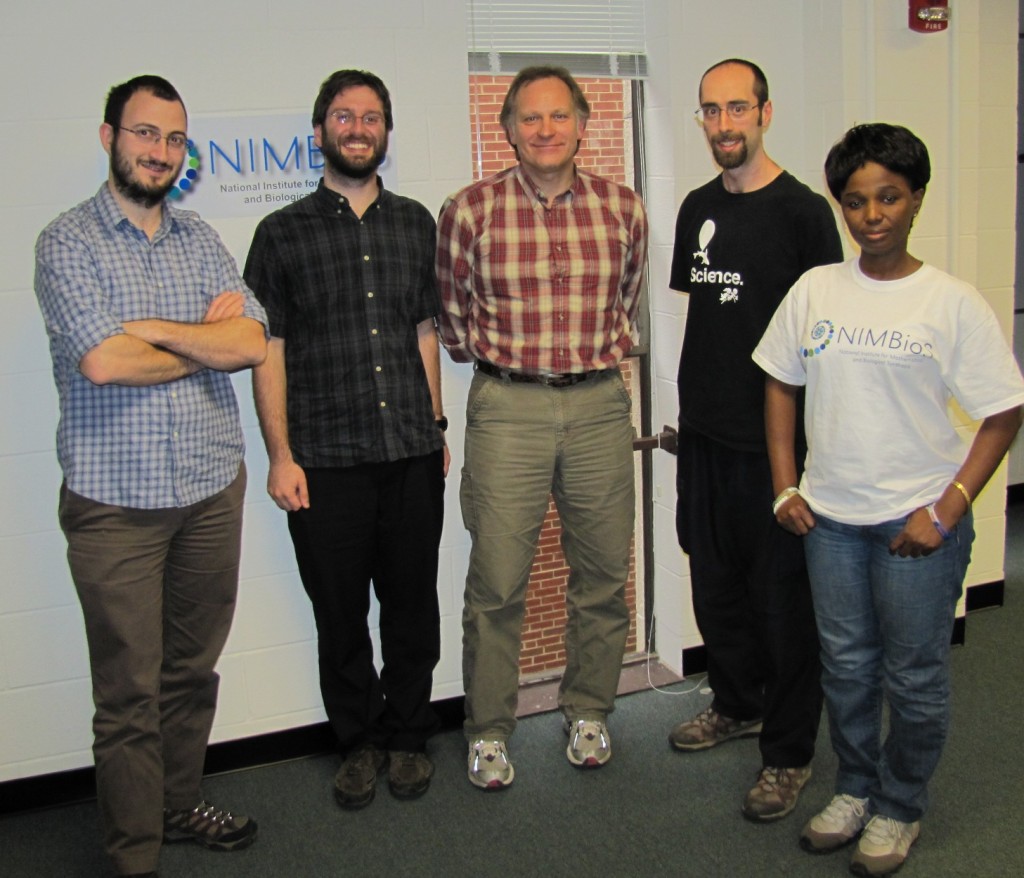
NIMBioS Postdoctoral Fellows Invited Distinguished Visitor Mark McPeek (center) visits with NIMBioS Postdocs, from left, Erol Akcay, Will Godsoe, Xavier Thibert-Plante, and Fola Agusto.
Theoretical ecologists should think about the world in a different way, said Dr. Mark A. McPeek, David T. McLaughlin Distinguished Professor of Biological Sciences at Dartmouth College, during Tuesday’s Interdisciplinary Seminar at NIMBioS. “Are our theories built for the right time?” was his question to the packed room — an audience of mostly faculty, postdocs, grad students, and undergraduates.
McPeek’s talk, Climate Change and How We Got the Biota We Have Today, used his research on the adaptation and diversification of Enallagma damselflies in North America over the past 15 million years to illustrate the consequences of continuous climate change. Most ecological and evolutionary theory, even theory built on stochastic dynamics, is formulated for an unchanging environment, he said. However, the history of the Earth is one of continuous climate change, and radical change at that over the past few million years.
With this in mind, McPeek urged scientific research to be more integrative and for scientists to consider all the possible disciplines that can influence any given metric a scientist might be interested in. McPeek was a NIMBioS Postdoctoral Fellows Invited Distinguished Visitor.
